Filter by

A Gentry Community Leicestershire in the Fifteenth Century, c.1422–c.1485
This book examines the fifteenth-century gentry of Leicestershire under five broad headings: as landholders, as members of a social community based on the county, as participants in and leaders of the government of the shire, as members of the wider family unit and, finally, as individuals. Economically assertive, they were also socially cohesive, this cohesion being provided by the shire commu…
- Edition
- -
- ISBN/ISSN
- 9780511560194
- Collation
- -
- Series Title
- Cambridge Studies in Medieval Life and Thought: Fourth Series (19)
- Call Number
- -
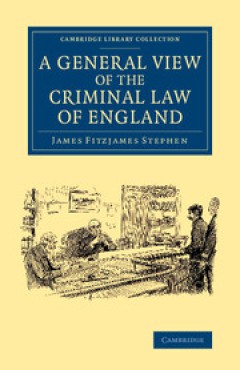
A Gentlewoman's Home The Whole Art of Building, Furnishing, and Beautifying …
Jane Ellen Panton (1847–1923) was the second daughter of the artist William Powell Frith, and an expert on domestic issues. First published in 1896, this is her guide to creating the 'dream house'. In it she draws on the experiences of Deborah and Dick, clients who sought her advice after looking unsuccessfully for a suitable home. The book is based on the notion that turning an existing buil…
- Edition
- -
- ISBN/ISSN
- 9781139381956
- Collation
- -
- Series Title
- Cambridge Library Collection - British and Irish History, 19th Century
- Call Number
- -
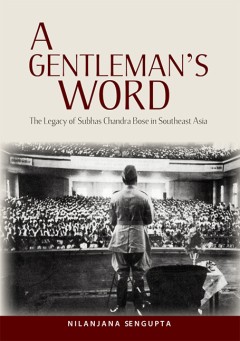
A Gentleman's Word The Legacy of Subhas Chandra Bose in Southeast Asia
The great Indian nationalist leader Subhas Chandra Bose arrived in Singapore in 1943 to revitalize the Indian National Army (INA). Taking the opportunity of the Japanese occupation of parts of Southeast Asia, he launched armed struggle against British colonial rule in India. Two years later, that attempt failed at the eastern gates of India. Yet, it was a temporary failure because the INA helpe…
- Edition
- -
- ISBN/ISSN
- 9789814379793
- Collation
- -
- Series Title
- Books and Monographs
- Call Number
- -
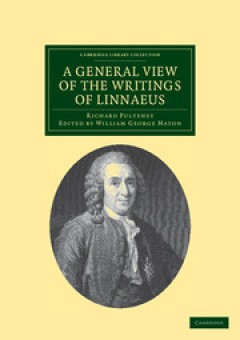
A General View of the Writings of Linnaeus
Carl Linnaeus (1707–88), father of modern taxonomy, was one of the most important scientists of the eighteenth century. This biography was written by Richard Pulteney (1730–1801), a physician and botanist who greatly admired Linnaeus' methods and aimed to promote them in England. The first edition was published in 1781 and contains a thorough account of the major works of Linnaeus and his u…
- Edition
- William George Maton
- ISBN/ISSN
- 9781139095945
- Collation
- -
- Series Title
- Cambridge Library Collection - Botany and Horticulture
- Call Number
- -
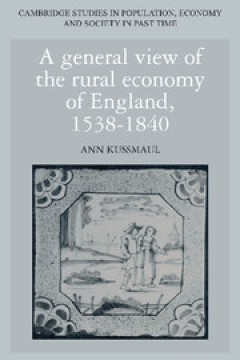
A General View of the Rural Economy of England, 1538–1840
In rural England prior to the Industrial Revolution people generally married when they were not busy with work. Parish registers of marriage therefore form an important and innovative source for the study of economic change in this period. Dr Kussmaul employs marriage dates to identify three main patterns of work and risk (arable, pastoral and rural industrial) and more importantly to show the …
- Edition
- -
- ISBN/ISSN
- 9780511560675
- Collation
- -
- Series Title
- Cambridge Studies in Population, Economy and Society in Past Time
- Call Number
- -
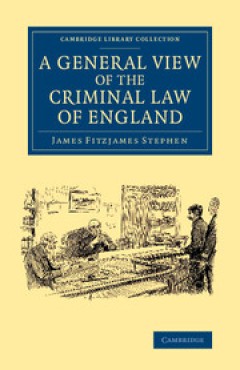
A General View of the Criminal Law of England
The jurist Sir James Fitzjames Stephen (1829–94) published this work in 1863 to provide the intelligent layman with a general account of the workings and principles of English criminal law. He begins with a brief sketch of the development of that law from the Anglo-Saxon period onwards. He then covers the current law on criminal responsibility and the classification and definition of specific…
- Edition
- -
- ISBN/ISSN
- 9781139794886
- Collation
- -
- Series Title
- Cambridge Library Collection - British and Irish History, 19th Century
- Call Number
- -
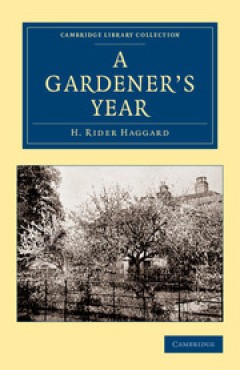
A Gardener's Year
H. Rider Haggard (1856–1925) is best known as the successful writer of adventure stories with exotic backgrounds such as King Solomon's Mines. However, he also served on a number of royal commissions, and in managing his wife's Norfolk estate became a recognised expert on agricultural matters. His A Farmer's Year (1898, also reissued in this series), recounts the work of the farm, together wi…
- Edition
- -
- ISBN/ISSN
- 9781139176651
- Collation
- -
- Series Title
- -
- Call Number
- -
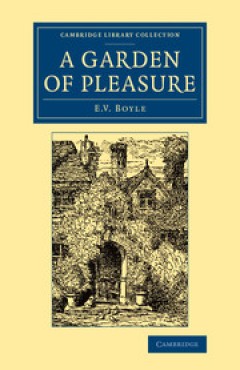
A Garden of Pleasure
Eleanor Vere Boyle (1825–1916), who re-created the gardens of Huntercombe Manor in Berkshire in the 1870s, was a talented artist as well as an author, illustrating both poetry and books for children. Coming from an aristocratic family, and in later life a friend of Queen Alexandra, she produced sketches and watercolours admired by Ruskin and Landseer, and Tennyson and Bulwer Lytton contribute…
- Edition
- -
- ISBN/ISSN
- 9781107741805
- Collation
- -
- Series Title
- Cambridge Library Collection - Botany and Horticulture
- Call Number
- -

A Formula Book of English Official Historical Documents
This 1909 work forms a second supplement to Hall's Studies in English Official Historical Documents. It gives examples of a wide range of English ministerial and judicial documents from the ninth to the seventeenth centuries. These are arranged according to type and purpose, the majority in Latin. The intention is to assist the user of such archival materials, by familiarising them with the for…
- Edition
- Hubert Hall
- ISBN/ISSN
- 9780511696923
- Collation
- -
- Series Title
- Cambridge Library Collection - Medieval History
- Call Number
- -
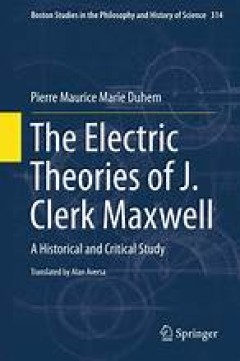
The Electric Theories of J. Clerk Maxwell
In this volume Pierre Duhem first gives an overview of 19th century electricity and magnetism. Next, he applies his keen historical, philosophical, and physical intuition to critiquing Maxwell’s theories, especially his electromagnetic theory of light and the ad hoc introduction of displacement current, which he considers too much a product of the “esprit de géométrie” than the “espri…
- Edition
- 1
- ISBN/ISSN
- 978-3-319-18515-6
- Collation
- XV, 185, 1 b/w illustrations
- Series Title
- Boston Studies in the Philosophy and History of Science
- Call Number
- -
 Computer Science, Information & General Works
Computer Science, Information & General Works  Philosophy & Psychology
Philosophy & Psychology  Religion
Religion  Social Sciences
Social Sciences  Language
Language  Pure Science
Pure Science  Applied Sciences
Applied Sciences  Art & Recreation
Art & Recreation  Literature
Literature  History & Geography
History & Geography